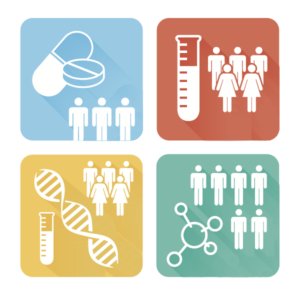The Success Story of Repeat Business from a CRO Sponsor

Every successful Clinical Research Organization (CRO), whether a small startup or a large corporation, relies heavily on the support and collaboration of sponsors. These CRO sponsors serve a crucial role by offering not only financial backing but also valuable guidance, mentorship, and access to a network that can unlock a multitude of opportunities.
In this blog, we will delve into the remarkable journey of securing repeat business from one such sponsor. This journey serves as a testament to the synergistic relationship that exists between sponsors and the CRO, BioPharma Services Inc.
The First Project
In 2022, BioPharma Services took on its inaugural project from its sponsor. This Phase 1 study posed unique challenges due to its three-part structure, with each part consisting of multiple cohorts. Following the kick-off meeting, the BioPharma Services team gained insight into the sponsor’s expectations, which encompassed database design, data transfer, collaboration with external vendors, User Acceptance Testing, and timely data listings export after each cohort.
Study Database:
The Data Management team was given a four-week timeline to GO LIVE. It was somewhat complex to integrate the study into a single database because each part of the study had a different visit structure and a varying number of forms. Form rules and skip logic played a crucial role, as certain visits required specific forms and form rule logic was applied accordingly.
Skip logic was instrumental in omitting unnecessary data fields during the study. BioPharma Services ensured that the database adhered to specifications, followed the protocol, and aligned with source documentation within the allotted time, ultimately achieving the on-time GO LIVE.
Sponsor’s UAT:
In addition to the internal UAT conducted by BioPharma Services, the sponsor’s team was actively involved in performing the UAT for the database. This collaboration provided us with an opportunity to develop and improve by incorporating their input into form design.
We had a five-business-day timeframe to complete the UAT in line with the established timelines, and BioPharma Services, along with the sponsor’s team, accomplished this through dedicated teamwork.
Edit checks:
Programmatic and custom edit checks are pivotal, particularly in complex Phase I studies. The team created an edit check specifications document, programmed the edit checks in the database, and provided the document for the sponsor’s feedback.
The sponsor’s team verified these programmed edit checks in the database to ensure that queries were executed following the specifications. Upon the sponsor’s suggestions, BioPharma Services considered their input, integrated it into the specifications, and programmed the database accordingly.
Data Entry/Double Data Entry:
It was quite challenging because we utilized double data entry to input data from the source document. Two different users entered the same data from the source document at different times and into different systems. This approach allowed us to identify and rectify most of the data entry issues.
Programmatic edit checks played a significant role during data entry. When the data entry user saved the form, it automatically triggered queries, which proved invaluable during the data cleaning and query management process to rectify data entry errors. These checks were also added as a filter to catch any mistakes in the database.
Source Data Verification/External monitoring:
External monitoring was conducted after 80% of data cleaning was completed following each cohort, while source document verification was performed for 100% of the data. We ensured a well-balanced approach to query management. After every monitoring visit and data entry, our clinical data associates focused on resolving queries. If any clarification was needed from the clinic staff to address or clarify discrepancies, it was promptly communicated to them, on average.
Data Export:
The initial requirement from the sponsor was to provide raw data export, including safety data listings, with a 48-hour turnaround time after the subject’s last visit to the cohort for Safety Review Committee meetings. The BioPharma Services team made a tremendous effort to deliver the data listings from the Clinical database and lab data transfer, in addition to conducting reconciliation after each cohort for all three parts without any delays, as promised. This transfer also encompassed the transfer of safety laboratory data and cognitive assessment data from external vendors.
External Vendor Data:
A data transfer agreement was established between BioPharma Services and external vendors to facilitate the transfer of data following the completion of each cohort. Subsequently, after the conclusion of every cohort, the data manager diligently conducted a reconciliation process, ensuring data consistency between the EDC and the database before sharing the data with the sponsor.
Database Hard lock:
Following the Last Subject Last Visit (LSLV), we had a four-week window to finalize the database, a task that proved to be challenging. To tackle this, we split it into two phases: the completion of the data cleaning process and query management.
This ensured that we had clean data for the Quality Assurance (QA) database audit. We successfully passed the QA audit with only minor observations, which were promptly addressed. Simultaneously, we shared the safety data listings after the soft lock for the sponsor’s review.
The team diligently addressed the comments from the sponsor’s review, updated the database accordingly, and ensured the completion of the activities’ checklist. We then obtained approval from the sponsor to proceed with the database hard lock and shared the comprehensive data export package with both the Biostatistics team and the sponsor’s team.
The Second Project
After the successful completion of our initial project, BioPharma Services embarked on our second venture with the same CRO sponsor. The lessons we learned from our first project prompted us to be proactive in addressing potential challenges and ensuring a smoother experience for the second project.
One key adjustment we made was to allocate additional time during the database setup phase. This allowed for a thorough sponsor review of both the source documents and the database User Acceptance Testing (UAT), as well as a comprehensive review of study-related documentation.
This approach was implemented in response to a delay we encountered in our first project due to changes in the study design. We aimed to avoid any hindrances by providing ample time for the setup process.
In line with our lessons learned, we also extended the time allocated for external monitoring. In our initial project, source document verification occurred after source documentation quality control, impacting electronic Case Report Forms (eCRFs) and causing delays in monitoring approvals and disapproval within the database.
For the second project, we strategically adjusted the external monitoring timelines. Source document quality assurance was performed before external monitoring, allowing for significant improvements in data quality and smoother project execution.
Furthermore, we paid close attention to the feedback received after our first project. The Biostats team noticed minor discrepancies post-database hard lock despite having programmatic edit checks in place. These discrepancies were meticulously tracked, and the root causes were identified.
As a result, for the second project, BioPharma Services incorporated backend checks into the project timelines. We also implemented a practice of sharing raw data exports with the biostatistics team after every cohort, allowing their dedicated statistical programmer to assess the data at this critical juncture. This proactive approach led to the timely rectification of data discrepancies, ensuring that our database hard lock process yielded data of the highest quality, free from any discrepancies.
In summary, the invaluable lessons from our initial project empowered us to make strategic adjustments and adopt a more proactive stance in our second project. By allocating additional time for reviews, optimizing external monitoring timelines, and implementing backend checks, we were able to deliver a project with smoother execution and data of the highest quality. These improvements showcase our commitment to continuous enhancement and the pursuit of excellence in every project we undertake.
Why Choose BioPharma Services as your trusted clinical trial partner.
The invaluable lessons our team learned during our initial project have been instrumental in identifying root causes and implementing improvements for our second project, ultimately enhancing the overall quality of our studies. It’s noteworthy that our dedication to excellence has been recognized, as we’ve been entrusted with our sponsor’s third project.
As we embark on this new endeavour, we eagerly anticipate the opportunity to tackle the minor challenges encountered in our second project and incorporate them into our practices. This process exemplifies our commitment to continuous learning and our ability to transform challenges into opportunities.
It is a testament to the dedication and hard work of the various functional groups within BioPharma Services, who have not only worked diligently but have also earned the trust and respect of our esteemed sponsor. Our resolute commitment to delivering exceptional results remains at the core of our mission, and we are excited to demonstrate our expertise and capabilities in this upcoming project.
Written by: Rajasekhar Yalaka, Sr. Clinical Data Manager



